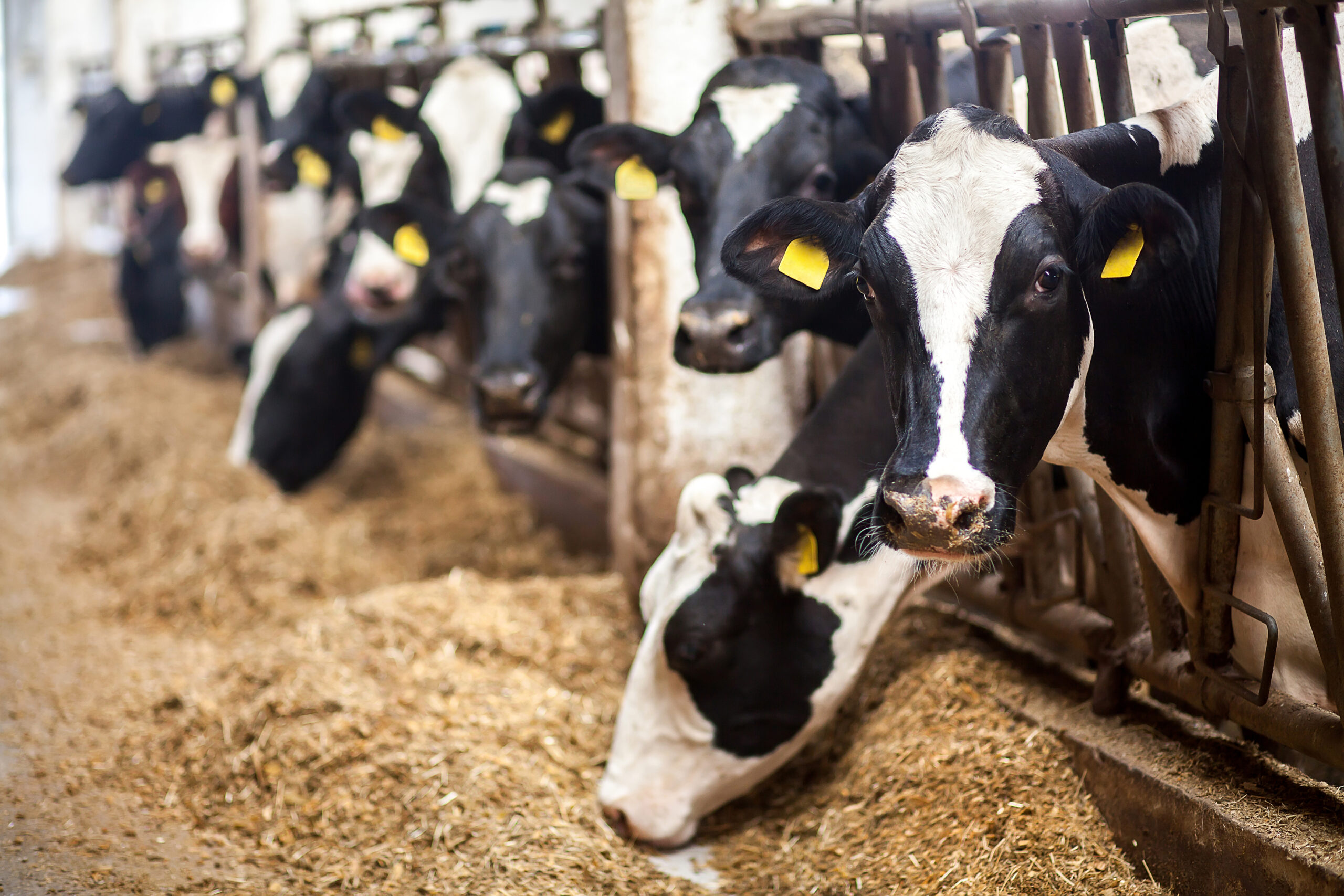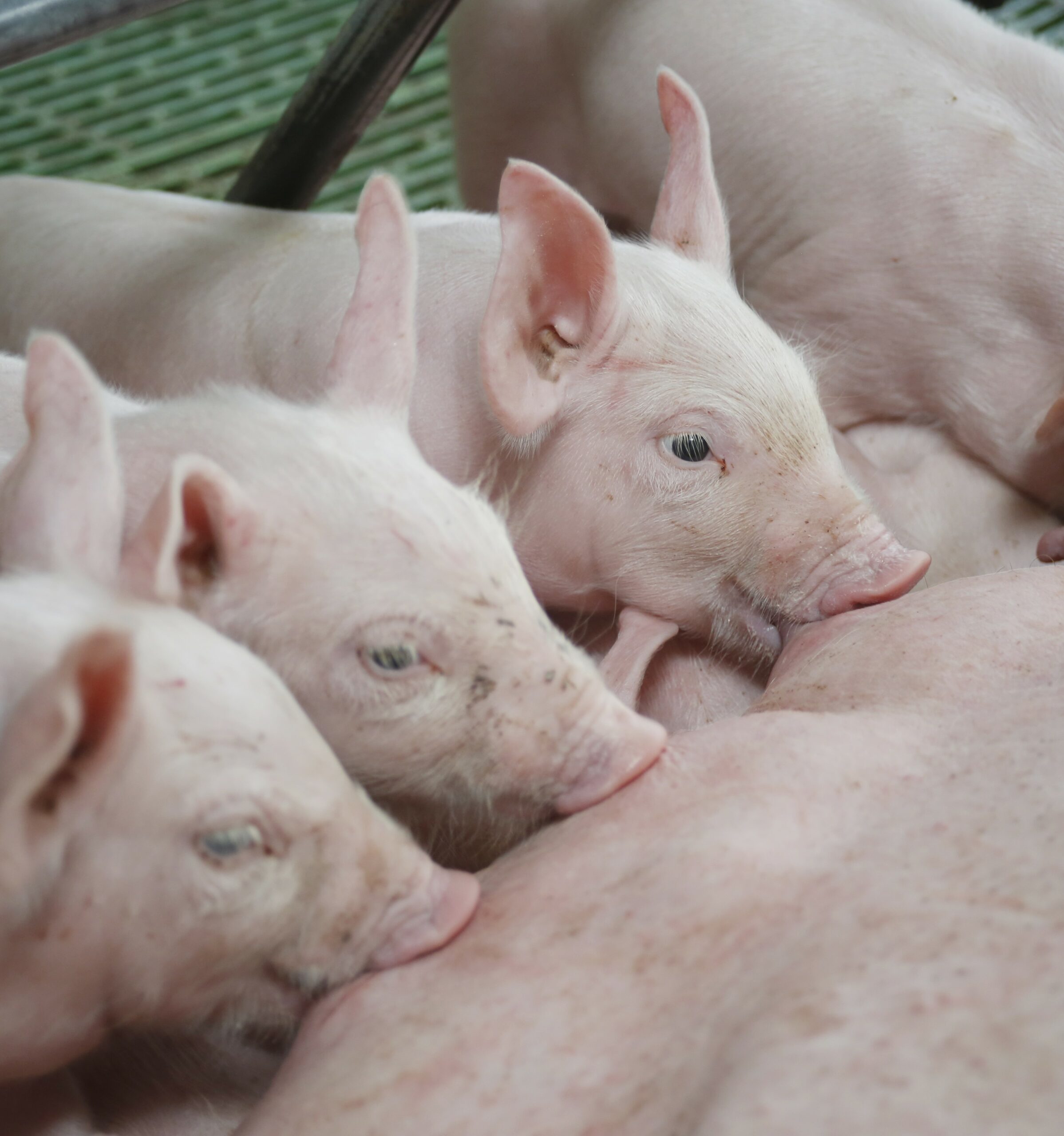





For the past 60 years, Adisseo has been offering palatable solutions with the purpose of Helping Nutrition Happen.
In our quest to develop class leading palatability solutions, we understand that nutrition is only achieved after feed is consumed. Our commitment to “Helping Nutrition Happen” focuses on facilitating this process. We aim for animals to express their natural feeding behavior and consume feed voluntarily, not just out of hunger.
Through continued investment in extensive research at dedicated centers worldwide, we identify the drivers of feeding behavior and investigate how diet ingredients and formulation impact feed appeal and intake.

We excel through a deep understanding of animal behavior, recognizing the significance of optimal nutrient intake in livestock performance and profitability. Our expertise also incorporates the impact of raw materials and feed ingredients on feed appeal.
» Goal #1: Ensure feed appeal during critical life stages in animal production
Our appetite stimulant solutions are formulated in-house and designed to enhance the hedonic value of feed to stimulate appetite and positively influence animal feeding behavior and the post-ingestive feedback mechanism. As a result, our proven solutions ensure fast adaptation to changes in diet and optimize feed intake during critical periods in livestock production.
» Goal #2: Enhance feed formulation flexibility and appeal
By improving the hedonic value of the feed and masking unpalatable diet components, such those with a bitter taste, our palatability enhancers offer greater flexibility when formulating at least cost whilst ensuring feed acceptance and intake. Additionally, our easy-to-handle solutions can enhance appeal to your customers by providing a distinctive aroma that reinforces your brand values.
» Goal #3: Sustain target production levels and economic performance
Providing solutions for more flexible use of a broader range of raw materials in diet formulation, while ensuring target feed intakes are achieved at all life stages, will enhance sustainability and efficiency in livestock production systems.

• Global network of Research and Innovation Centers:
The Research and Innovation (R&I) division consolidates global expertise in analysis, biotechnology, chemistry, nutrition, engineering and process technology, including encapsulation. With 6 research centers worldwide, including 2 livestock research stations, Adisseo’s R&I division is committed to advancing scientific knowledge and technological innovations in the agricultural industry.
✔ More info about innovation in Adisseo
• Scientific research in palatability and feeding behavior:
Our research goal is to increase our knowledge and understanding of animal feeding behavior and the factors that influence it during production. Using unique Adisseo Insight Lab protocols that incorporate precision feeding systems and smart vision AI technologies allows for the passive collection of individual animal behavior data in real time. This enables us to investigate the influence of feed composition, palatability and transitions between production phases on feeding behavior as well as testing solutions to overcome the challenges we discover.

1. Stress in sows: implications on feed intake, body reserves and long-term productivity
Heat stress in sows significantly impacts their feeding behavior, leading to a reduction in voluntary feed intake. This can negatively affect their milk production, body reserves, and post weaning reproductive performance and longevity.
The use of palatants in the feed of sows suffering from heat stress can stimulate their appetite and enhance feed intake. This helps mitigate the negative impacts of heat stress on their overall health and productivity.
Our solution:
Key figure:
Sow feed intake increase by 0.2 – 0.5 kg/day during lactation
2. Weaning stress in piglets: alleviate the impact of feed transition with sensory imprinting
Weaning is a stressful period for piglets, involving a sudden transition from milk to solid feed, which often results in a period of low and variable feed intake, which restricts and delays growth.
Sensory imprinting in piglets, a process where the taste of the sow’s diet is linked with the weaner diet, encourages early consumption of feed at weaning, thereby improving voluntary feed intake and overall piglet performance.
Our solution:
Key figure:
+29% feed intake
3. Gusti® Plus: enhancing feed preference and milking frequency in dairy cows with automated milking systems
Managing the number of cow visits is one of the key challenges to successful use of automatic milking systems (AMS) as too few visits can lead to reduced milk production. This challenge is often greater in systems where the herd are outside at pasture and the AMS is located inside the barn.
In automatic milking systems, providing palatable feed as a reward is a significant motivating factor that encourages dairy cows to voluntarily visit the milking station frequently. This facilitates consistent and efficient milking schedules and optimum utilization of the AMS.
Key figure:
Both early and late lactation dairy cows saw a significant increase in the number of milkings
Technical article:


• Palatability is a key driver of feed intake:
In nature, animals must select from a variety of potential foods to meet their daily nutrient requirements while avoiding harmful substances. The combination of smell, taste and post-digestion metabolic feedback helps animals make informed choices about what to eat.
• At Adisseo, with over 60 years of experience, we offer solutions to enhance natural feeding behavior:
Our solutions enhance feed intake, especially in animals with high nutritional demand (i.e., lactating animals) or during critical periods of stress (i.e. heat stress, weaning period, etc.). Our solutions also allow more flexibility in formulating rations, masking unpalatable components and providing a uniform and enhanced flavor profile.